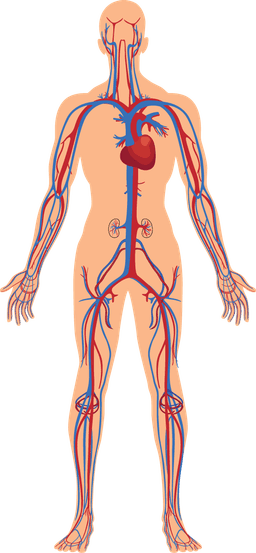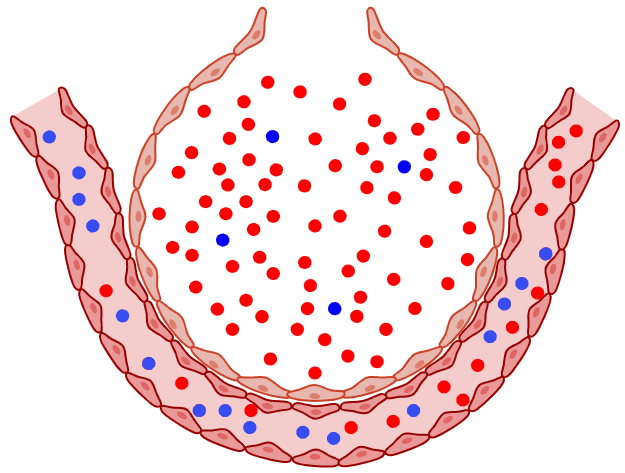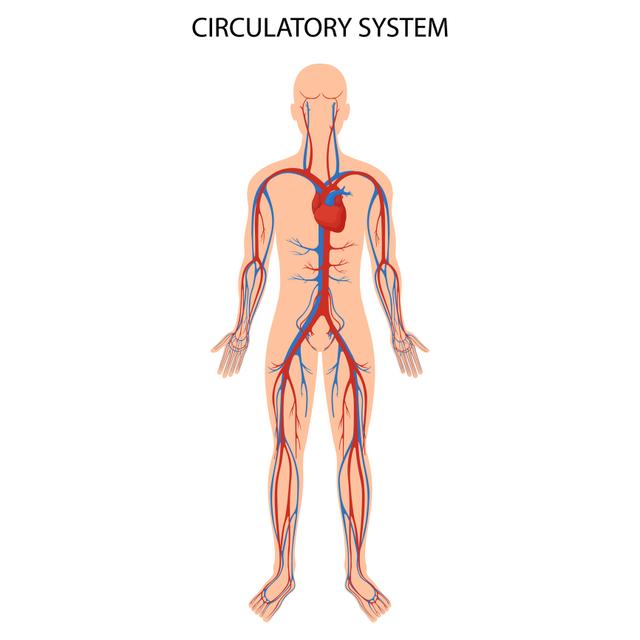The human circulatory system
I can explain the role of the circulatory system in supplying every living cell in the human body with the substances it needs to stay alive.
The human circulatory system
I can explain the role of the circulatory system in supplying every living cell in the human body with the substances it needs to stay alive.
These resources will be removed by end of Summer Term 2025.
Switch to our new teaching resources now - designed by teachers and leading subject experts, and tested in classrooms.
These resources were created for remote use during the pandemic and are not designed for classroom teaching.
Lesson details
Key learning points
- Humans are multicellular organisms; the human body is made up of millions of living cells.
- Every cell must be supplied with substances for respiration, growth and repair; waste products must be removed.
- The circulatory system transports substances between cells and the gas exchange, digestive and excretory systems.
- The circulatory system is made up of the heart, blood vessels and blood.
Keywords
Multicellular - An organism containing many cells.
Nutrients - A substance that provides essential substances for energy, growth or repair.
Waste - Products that are no longer required by cells.
Circulatory system - The system which transports nutrients and waste around the body.
Common misconception
Nutrients and waste are either not produced, or not by every cell, with misconceptions about where these substances come from or go to and what the roles of the various systems are as a result.
Key nutrients and waste products are dealt with individually and related to the relevant body systems. These ideas are focused on in main and check tasks.
To help you plan your year 10 biology lesson on: The human circulatory system, download all teaching resources for free and adapt to suit your pupils' needs...
To help you plan your year 10 biology lesson on: The human circulatory system, download all teaching resources for free and adapt to suit your pupils' needs.
The starter quiz will activate and check your pupils' prior knowledge, with versions available both with and without answers in PDF format.
We use learning cycles to break down learning into key concepts or ideas linked to the learning outcome. Each learning cycle features explanations with checks for understanding and practice tasks with feedback. All of this is found in our slide decks, ready for you to download and edit. The practice tasks are also available as printable worksheets and some lessons have additional materials with extra material you might need for teaching the lesson.
The assessment exit quiz will test your pupils' understanding of the key learning points.
Our video is a tool for planning, showing how other teachers might teach the lesson, offering helpful tips, modelled explanations and inspiration for your own delivery in the classroom. Plus, you can set it as homework or revision for pupils and keep their learning on track by sharing an online pupil version of this lesson.
Explore more key stage 4 biology lessons from the Transport and exchange surfaces in humans unit, dive into the full secondary biology curriculum, or learn more about lesson planning.

Licence
Starter quiz
6 Questions


Exit quiz
6 Questions

carry oxygen
fight disease
the fluid that cells and nutrients and waste products are dissolved in
cause blood clotting and scab formation


